Roca has been privileged to get to know thousands of young people since 1988. They have grown, developed and changed, and so has Roca.
2024
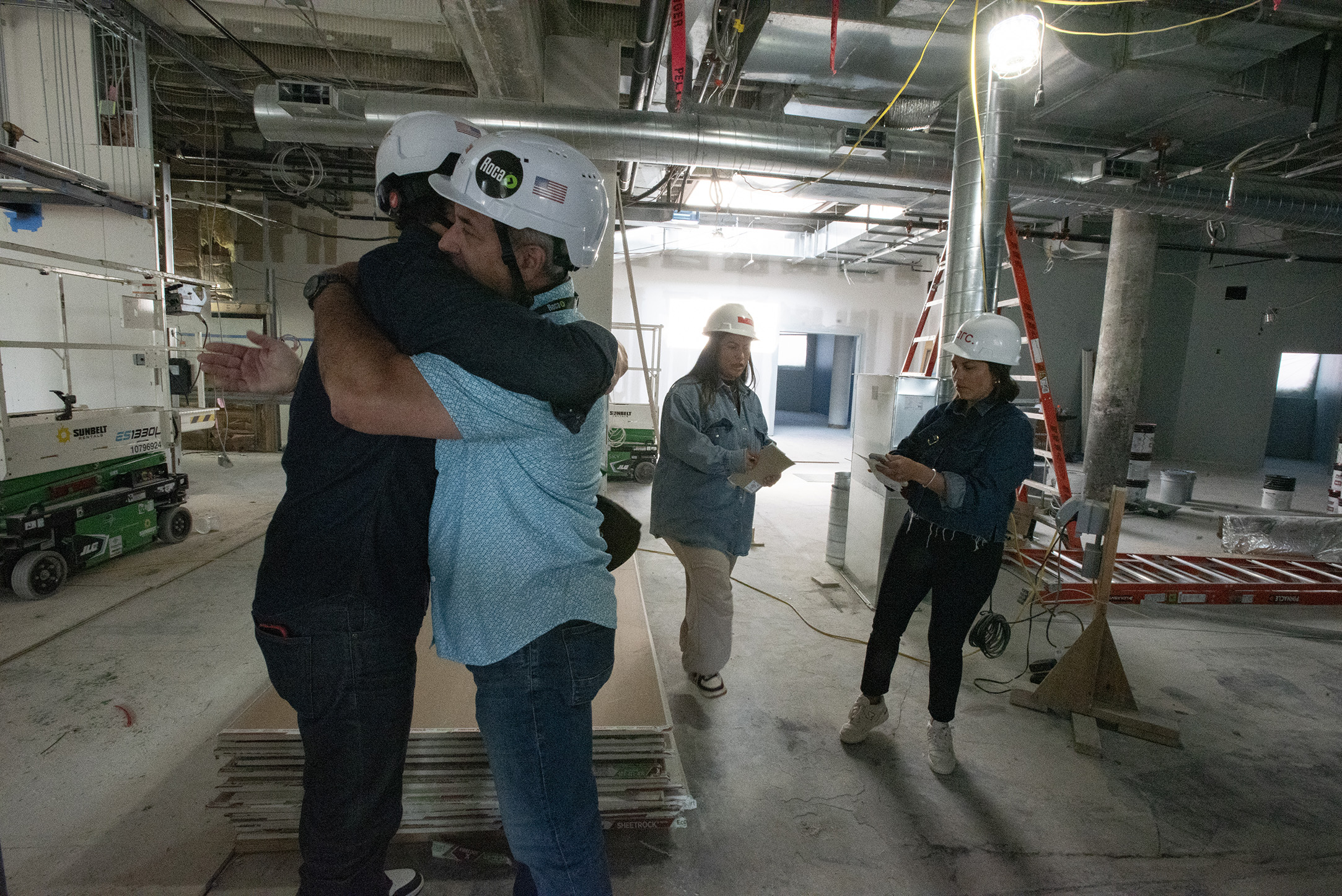
Roca completely renovates its flagship site in Chelsea, transforming the space into a modern, dynamic national headquarters.
2023
Roca Baltimore successfully concludes its capital campaign to purchase a permanent home in the city.

Roca celebrates 35 years of relentless impact with partners, supporters, and young people.
2022
Roca Springfield partners with and Baystate Medical to launch Better Tomorrow, a first-in-the-region hospital-based violence-intervention program.
Two third-party evaluators, ABT Associates and MDRC, each complete 3-year evaluations which suggest that Roca’s trauma-informed approach to community violence intervention works.
The Prince and Princess of Wales honor Roca with a special visit.

Photo by Magno Garcia.
2021

Roca Hartford opens its doors, bringing the Young Mothers Program to Connecticut.
Roca collaborates with the Baltimore Police Department on an After Shooting Protocol to make sure gunshot survivors receive a door knock from Roca Youth workers 48–72 hours after each nonfatal shooting.
2020
Roca launches the first trainee cohorts of the Roca Impact Institute, its community training model for systems and organizations.
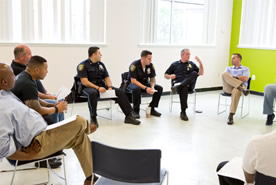
Roca transformed our Intervention Model into a truly portable, truly hybrid, virtual and in-person practice—a timely upgrade to our work that served us well in an unpredictable pandemic.
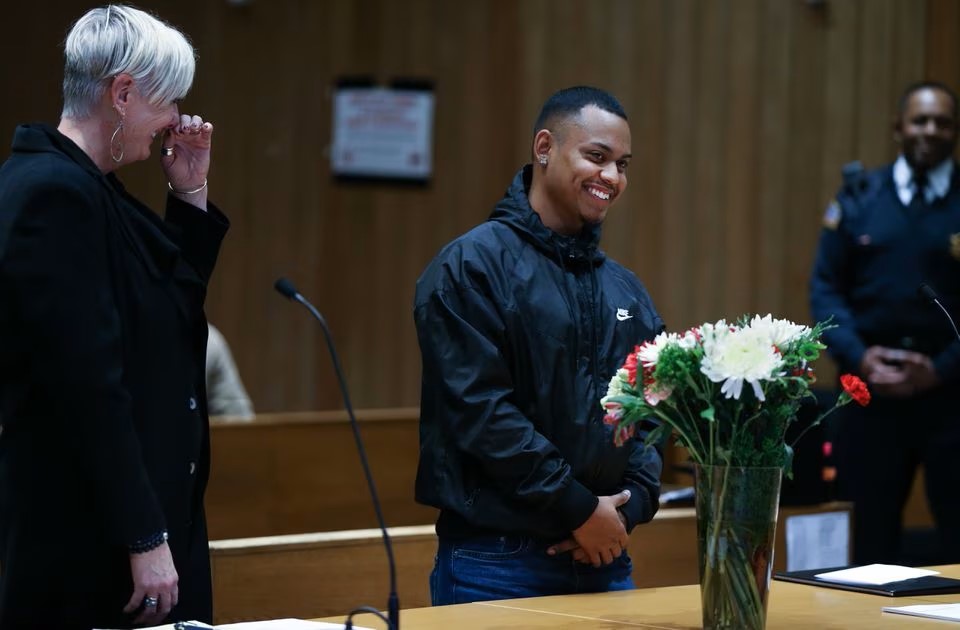
Photo by Jonathan Wiggs, The Boston Globe
Roca and Hampden County District Attorney Anthony Gulluni launch the Emerging Adult Court of Hope (EACH) program, which gives young adults facing criminal charges the opportunity to turn their lives around by having criminal charges dismissed and their records sealed.
2019
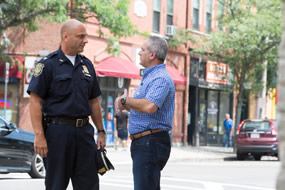
Roca extends Pay for Success contract with the Commonwealth of Massachusetts for an additional 3.75 years.
Roca begins working behind-the-walls of four correctional institutions with young adults and corrections staff.
2018

A fifth Massachusetts site of Roca is launched in Holyoke, MA, operating as a satellite office of the Springfield site.

Roca Baltimore is launched, the first replication of Roca’s Intervention Model outside of Massachusetts.
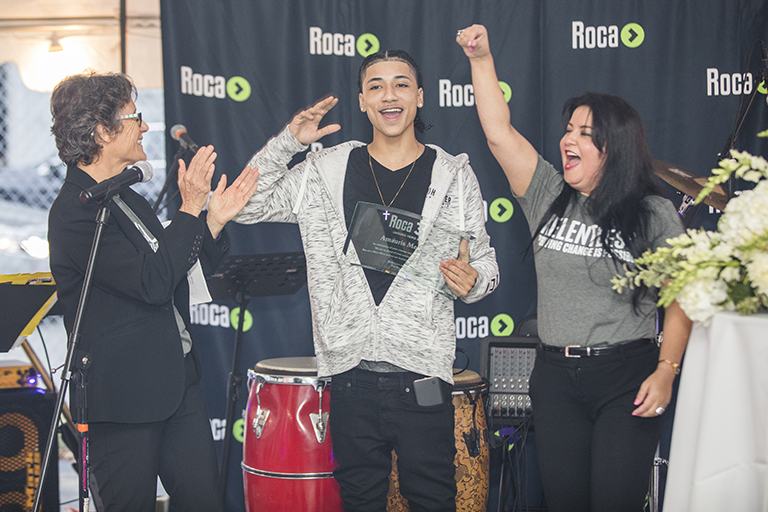
Roca celebrates 30 years of relentless impact with partners, supporters, and young people.
2016
Roca develops a new Cognitive Behavioral Theory (CBT) curriculum in collaboration with Community Psychiatry PRIDE, an implementation and dissemination clinical research center at Massachusetts General Hospital/Harvard Medical School. The project, supported by the Laura and John Arnold Foundation, introduces the first CBT curriculum targeting justice-involved young adults in community settings.
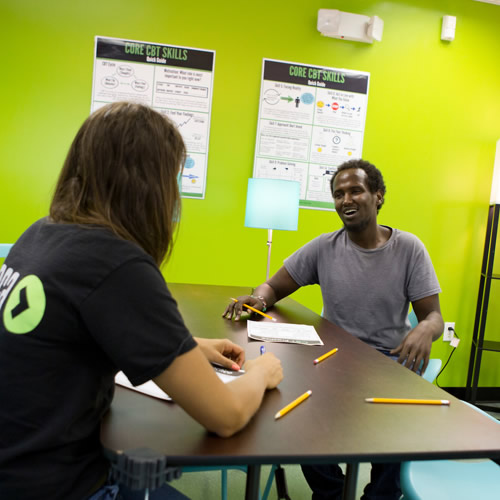
Roca focuses its young mothers’ programming on the highest risk young mothers, thanks Healthy Families for 18 years of partnership, and expands Roca’s High Risk Young Mothers program.
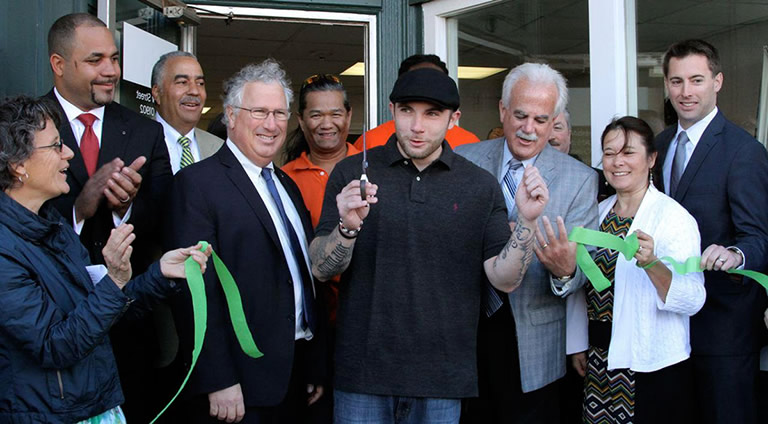
Roca opens its site in Lynn, MA, a satellite office of the organization’s main site in Chelsea.
2015
New research in brain development and social sciences causes criminal justice agencies across the country to start focusing on young adults, a population historically overlooked by the justice system. In a search for effective interventions for justice-involved young adults, Roca’s Intervention Model is at the heart of national attention.
2014
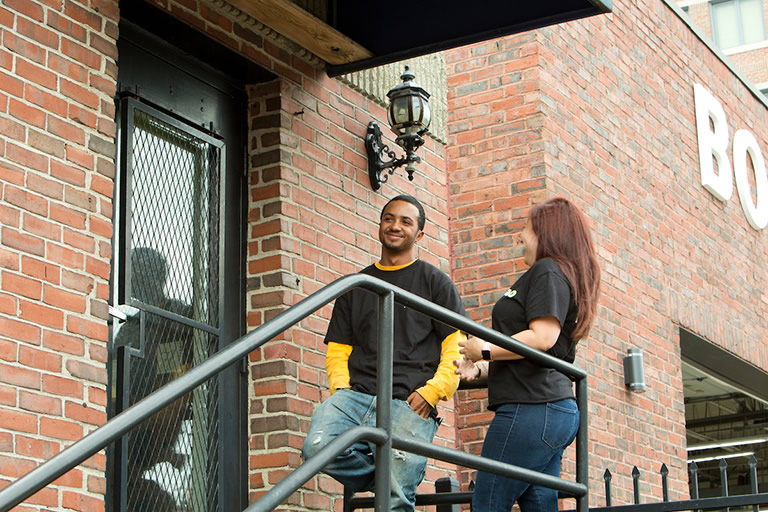
A second replication of Roca’s Intervention Model is launched in Boston.
Pay for Success project is launched, and Massachusetts criminal justice agencies start referring high-risk young men to Roca. Financial investors in the project include the lenders Goldman Sachs, The Kresge Foundation and Living Cities; the philanthropic grantors Laura and John Arnold Foundation, New Profit Inc. and The Boston Foundation; and Roca and Third Sector Capital Partners.
2013

The High-Risk Young Mothers program is launched, focusing on young mothers who are not ready, willing and able to participate in work, school and traditional parenting and home visiting programs, supported by the Kellogg Foundation. Roca conducts a comprehensive literature review and runs a “think tank”, leading to the conclusion that this population is not served by any existing program in the country.
Roca is invited to join Harvard Kennedy School’s Executive Session on Community Corrections, a 3-year collaborative effort to advance new thinking and develop best practices in the field.

Roca celebrates its 25th anniversary with partners and participants.
2012
The Commonwealth of Massachusetts announces that Roca is selected to lead the nation’s largest Pay for Success initiative, the Massachusetts Juvenile Justice Pay for Success project, through which over 1,000 high-risk young men will be engaged in Roca’s Intervention Model.
Community Resources for Justice at The Crime and Justice Institute completes its Implementation Study of Roca’s High-Risk Youth Intervention Model, concluding a series of reports about Roca’s work.
2011
A third Theory of Change process leads Roca to an even clearer definition of its target population, focusing on justice-involved young adults and reducing recidivism.
Analysis of Roca’s data and further research lead Roca to shorten the length of the Intervention Model from a five-year intervention (three years intensive, two years follow-up) to the current time period of four years of intervention (two years intensive, two years follow-up).
Roca develops a Workforce Readiness Criteria, creating a standard of what deems a young person workforce-ready, so that young people are prepared to be placed in jobs and to retain employment.
2010
First replication of Roca’s Intervention Model in Springfield, MA, serving young men from several communities in Western Massachusetts.

Roca is awarded the Pathways Out of Poverty Grant, a $2.3M support from the US Department of Labor focused on helping disadvantaged population develop pathways into economic self-sufficiency.
2009

Pre-vocational training is launched in order to expand employment opportunities for graduates.
A second Theory of Change process leads Roca to narrow its target population and focus the young men’s programming exclusively on high-risk participants. Services for low- and medium-risk young men are gradually discontinued, and enrollment protocols are updated to reflect target population change.
2008

Working with Community Resources for Justice at the Crime and Justice Institute, Roca starts an Implementation and Outcome Evaluation project, with the goal of preparing the organization for future evaluation. Roca explores its own capacity to deliver a clear behavior change model and to track participant outcomes.
RIRI, the Roca Immigrants and Refugees Initiative starts, serving high risk young adult refugees and immigrants, and providing adult programming including ESL classes, community organizing and “know our rights” workshops.
2006
Roca’s Annual Breakfast is held for the first time, celebrating together with Roca supporters the achievements of Roca’s young people and the organization’s growth.

Roca inaugurates its Transitional Employment Program (TEP), the key part of Roca’s employment programming, with support from Strategic Grant Partners. In TEP, participants work on Roca-supervised work crews and earn real wages for real work, while learning critical work skills.
Data tracking system is implemented at Roca, based on Social Solution’s Efforts to Outcomes (ETO) Software. Roca starts careful tracking of multiple aspects of the program
2005
Roca starts its first Theory of Change process, with assistance of the Edna McConnell Clark Foundation. Roca identifies Relentless Outreach and Transformational Relationships as key areas of expertise and starts a process to ensure that Roca’s day-to-day operations align with the organization’s mission.
2004
Roca learns about the concept of Stages of Change and begins to study its implementation in programming and model design.
2002

The VIA Project starts, a “street school” for the most disenfranchised young adults, with a $2M grant from the W.K. Kellogg Foundation.
2000

Roca is selected as a United Way of Massachusetts Bay Affiliate Agency.

The new Edna McConnell Clark Foundation Growth Fund chooses Roca as one of its three sites, resulting in a five-year, $2.1M investment.

Roca learn the practice of Peacemaking Circles from the Tagish Tlingit people in the Yukon Territories, and starts using it with program participants, staff, families, police, criminal justice agencies, community-based organizations and other community members. Roca becomes a key player in the restorative justice movement, advancing use of peacemaking circles in various settings.
1999
The Roca Community Building Team is launched to expand Coalition for Youth and Families work, including a youth- and parent-led Educational Organizing Campaign, and increasing work with parents and the newcomer community.
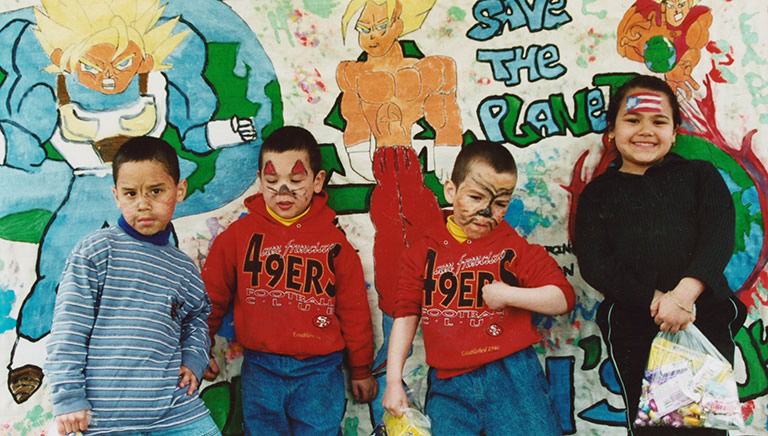
Roca begins to intentionally increase outreach to newcomer refugees – Bosnian, Somali, Moroccan, Sudanese, etc. Working with various communities, Roca’s Chelsea building regularly hosts seven active churches and one mosque.
The National Crime Prevention Council selects Roca Revere Leadership Program as one of three national “Best Practices”.
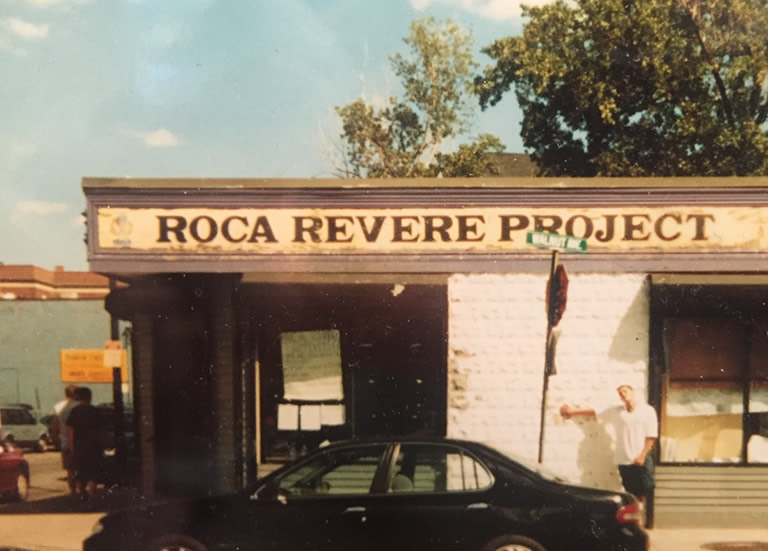
1998

Massachusetts General Hospital Healthcare Center partners with Roca to open a satellite health clinic for youth and young adults within the Roca Chelsea building, offering general health care, family planning, HIV/AIDS testing and STD testing.

Roca Healthy Families Program is established, significantly expanding Roca’s work with young parents through home visits, meetings and youth team.
1997
Family Education Project starts at the request of Chelsea parents, with ESL, GED, ABE, Citizenship and Computer classes.
1996

Roca purchases and moves into its current Chelsea building, a 21,000 square foot youth and community center, formerly an auto dealership.
1993
An AmeriCorps program, Youth STAR, begins, the first high-risk and first Cambodian youth-led service and conservation corps.

1992
The Roca Revere Leadership Program is established in a week’s time, in response to intra-Cambodian gang conflict and racial violence in Revere, MA.
1991

Roca starts with the Department of Public Health a program for HIV/AIDS prevention.
1988
Roca, Inc. is founded by Molly Baldwin in Chelsea, MA, operating as a part of North Suffolk Mental Health, and quickly becoming an independent organization. Following policy work that identified teen pregnancy as a major barrier that kept young people in poverty, Roca focuses on teen pregnancy prevention. From its first day, the program targets high-risk young men out of schools, gang members and high-risk young mothers.


